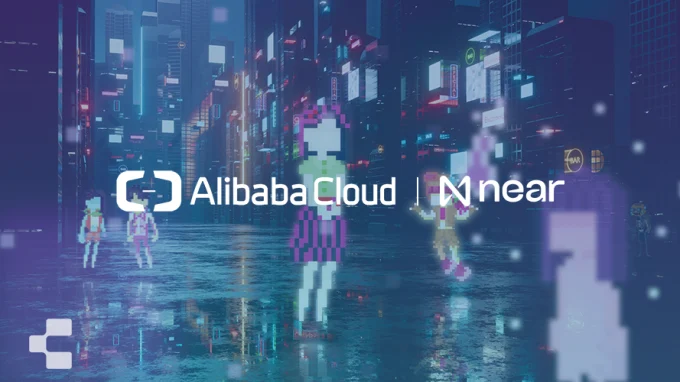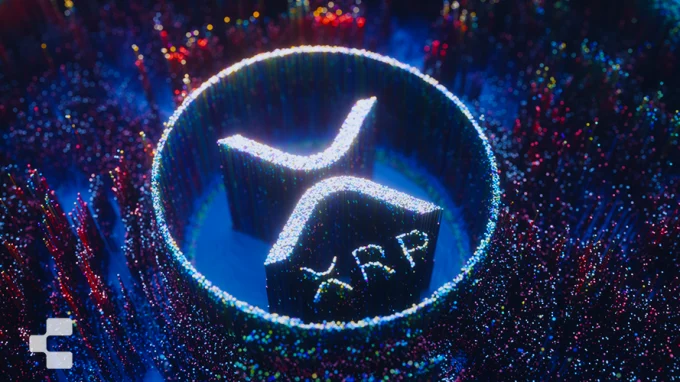Binance Confirms Bitcoin Lightning Network Integration

Crypto exchange Binance is working on integrating Bitcoin Lightning Network with its platform, as announced back in May. This Bitcoin layer-2 solution was designed to improve the Bitcoin network’s scalability and significantly increase its transaction speed.
After some users have recently discovered Binance’s new Lightning Network nodes, the company has confirmed that it is making progress. But it also explained that more work needs to be done before this new network can be fully implemented into its systems.
Binance on Twitter
This is the tweet that Binance wrote to announce the news.
First, the exchange stated that it is working on integrating the Bitcoin Lightning Network: “Binance is working to integrate the Bitcoin Lightning Network for deposits and withdrawals.”
It then acknowledged some tech-savvy users who realized this before the announcement: “Some eagle-eyed users spotted our new lightning nodes recently. Yes – that’s us!”
Finally, Binance clarified that the network is not yet fully integrated and that it would take more time to set it up: “However, there’s still more tech work to be done. We’ll update once Lightning is fully integrated.”
Pausing Withdrawals
Back in early May, Binance had to pause Bitcoin withdrawals because of too many transactions: “We’ve temporarily closed BTC withdrawals due to the large volume of pending transactions.”
To prevent the issue in the future, the exchange adjusted its fees and improved its on-chain monitoring efforts: “To prevent a similar recurrence in the future, our fees have been adjusted. We will continue to monitor on-chain activity and adjust accordingly if needed.”
But more importantly, Binance announced that its team is working on integrating the Lightning Network: “Our team has also been working on enabling BTC Lightning Network withdrawals, which will help in such situations.”
Lightning Network
The Bitcoin Lightning Network is a layer-2 solution for the Bitcoin blockchain. It was designed by Lightning Labs to improve Bitcoin’s scalability and transaction processing speed.
To achieve this, the network utilizes payment channels to enable off-chain transactions, effectively avoiding the downsides of recording every transaction on-chain. As a result, users can enjoy nearly instant transactions and low fees.
Lightning Labs CEO, Elizabeth Stark, is often quoted as saying that the Lightning Network is being built to become the Visa of Bitcoin.
Published version: coinstandard.net/binance-confirms-lightning-network-integration
NEAR Foundation Partners with Alibaba Cloud

NEAR Foundation will work together with Alibaba Cloud to boost the growth of Web3 in Asia. Their alliance will provide multi-chain indexing for data-query APIs, which is highly beneficial for Web3 builders.
Executives from both companies have shared their excitement and thoughts on how this could affect the future of Web3.
The Partnership
NEAR Foundation, the organization directing NEAR protocol’s development, has partnered with Alibaba Cloud, the Chinese tech giant’s cloud computing subsidiary. The partnership should speed up Web3 development in the Middle East and Asia.
It will also allow the NEAR Foundation to utilize Alibaba Cloud’s development ecosystem to attract new developers to build on the NEAR protocol. In turn, developers that want to create new NEAR validators can use Alibaba Cloud’s infrastructure-as-a-service (IaaS) solution.
The NEAR Foundation and Alibaba Cloud will provide a service for remote procedure calls to builders and consumers in the NEAR ecosystem. Remote procedure calls (RPC) let users read data from blockchains and exchange transactions between different blockchain networks. They also provide multi-chain indexing for data-query APIs.
Furthermore, NEAR’s users can utilize its Blockchain Operating System (BOS), a solution it introduced earlier this year. BOS allows developers to build and communicate with other users while employing the infrastructure of Alibaba Cloud.
NEAR on Twitter
NEAR tweeted about this on Monday and link to a blog post with more information.
Its CEO, Marieke Flament, is quoted there calling the new partnership a major milestone for NEAR: “Our partnership with Alibaba Cloud is a major milestone for the NEAR Foundation as it proves that NEAR has the capabilities to lift the restrictions surrounding Web3 development.”
He expects it to benefit Web3 creators and onboard more people to the industry: “It will allow more creators to build exciting applications while also helping to onboard billions of Web2 users to the possibility of Web3.”
Alibaba Executives
This news is not surprising when we consider that Alibaba recently announced the hiring a new Chairman, Joseph Tsai.
Joseph is one of the company’s founders and will take on the new role in September. More importantly, he is an active investor in Web3 and has arranged several deals between Alibaba and crypto companies this year.
The Head of International Web3 Solutions at Alibaba Cloud, Raymond Xiao, shared his thoughts on the topic as well.
He said that the partnership with NEAR is important in supporting Web3 developers: “The NEAR Foundation and Alibaba Cloud partnership is an important one as we continue to support Web3 developers to explore opportunities.”
Additionally, he explained the benefits of Alibaba Cloud solutions for the Asian markets: “It is also significant for developers and validators in the Asian markets, as they can leverage Alibaba Cloud’s comprehensive infrastructure in Asia.”
Published version: coinstandard.net/near-foundation-partners-with-alibaba-cloud
Deutsche Bank Applies for Digital Asset License

Germany’s biggest bank, Deutsche Bank, has recently applied for a digital asset license with the Federal Financial Supervisory Authority (BaFin). With more than $1 trillion of assets under management, it could significantly impact the crypto industry.
The bank started working on a crypto asset platform in 2020 and initially planned to offer crypto custody services as early as 2021.
Deutsche Bank’s Conference
Here’s what the Head of Corporate Bank, David Lynne, said at Deutsche Bank’s German-Swiss Austrian Conference this week.
The bank is building a digital asset and custody business and has applied for a license with BaFin: “In our security services business, we’re building our digital asset and custody business. We’ve just put our application into the BaFin for the digital asset license.”
It expects the global economy to keep evolving towards tokenization: “So, we do see the world moving more to tokenization. That cuts across both our custody business and our TAS business, where people store their digital tokenized assets.”
Bitcoin and NFT got endorsed as holding the highest potential among digital assets: “That may be Bitcoin, but increasingly, that may be NFTs. We’re seeing a lot of corporate clients use the NFT market as a branding exercise and a connection to the real world.
David highlighted that the bank provides services to the world’s largest brands who could soon start utilizing NFTs: “If you think about a large number of what our global corporate clients have, they own the main brands in the world, and they might link those through NFT markets.”
Surprisingly enough, he appears to have a positive view of some aspects of DeFi as well: “Clearly, as a big provider of debt, trust, and agency services, we do see a move where bonds, loans, and different financial instruments will become more tokenized. That gives much greater operational efficiency effectively in tokenization.”
At the end of his speech, the Head also mentioned the possibilities of fractionalization in the fine art industry: “It allows fractionalization, which is an important part. If you’re securitizing buildings or art, the capability to fractionalize the ownership is really important.”
Germany’s Stance on Crypto
Germany has maintained the status of one of the most crypto-friendly countries over the years.
In fact, the German parliament passed a bill to enable German banks to offer crypto trading and custody services as early as January 1st, 2020.
But late last year, BaFin reported that the banks are still not showing much interest in offering crypto trading services: “Overall, banks’ interest in offering crypto-asset trading to their customers still seems, to me, to be limited.”
By then, the federal institution has issued just four crypto custody licenses and 14 provisional permits. “Currently, we have issued four licences for crypto custody and 14 institutions have a provisional permit.”
Published version: coinstandard.net/deutsche-bank-applies-for-digital-asset-license
Ripple Receives In-Principle Approval for a License in Singapore

Ripple (XRP) has recently obtained in-principal approval for a Major Payments Institution License from the Monetary Authority of Singapore.
The good news was shared on the company’s official website, along with comments from two executives.
Press Release
Ripple started its press release by announcing it has obtained the approval: “Monetary Authority of Singapore (MAS) granted Ripple In-Principle Approval of the Major Payments Institution Licence application.”
The company then clarified that this license will allow it to provide regulated crypto products and services: “This will allow Ripple Markets APAC Pte Ltd (Ripple’s Singapore arm of the global business) to offer regulated digital payment token products and services in the city-state.”
To put things in perspective, it also shared that less than twenty crypto companies have been able to achieve this so far: “To date, fewer than 20 in-principle approvals and licenses have been granted to crypto companies by the MAS.“
Furthermore, Ripple was among the first to recognize what Singapore has to offer: “Ripple has had a strong pulse on the opportunity that Singapore presents since opening its Asia Pacific headquarters in 2017.”
Last year the company experienced significant growth in the Asia-Pacific region: “With customers across APAC, Ripple’s payments solution experienced massive growth in 2022, providing businesses and institutions with the ability to streamline their cross-border payments.”
It even had to double its workforce to keep up with demand: “Internally, Ripple’s operations in the Singapore office strengthened as the number of employees doubled to support growing demand in the region.”
Ripple Executives Share Their Thoughts
Two Ripple executives were quoted in the press release: Brad Garlinghouse and Stu Alderoty.
Ripple’s CEO, Brad Garlinghouse, called Singapore an important business gateway to the Asia Pacific: “Singapore is a leading global financial center and a prominent gateway to business in the Asia Pacific.
In response to Singapore’s approval, he expressed how proud the company is to receive this recognition: “We’re incredibly proud to receive an in-principle license from the MAS, reaffirming our commitment to the region and ongoing proactive engagement with regulators globally.”
Stu Alderoty, the company’s Chief Legal Officer, praised Singapore for taking the lead in crypto regulations: “As more countries develop regulatory frameworks for crypto, many are looking to Singapore’s early leadership in developing a clear taxonomy and licensing framework.”
Furthermore, he explained that this approval would improve Ripple’s ability to support future-oriented individuals and businesses who want to utilize blockchain technologies.
“This in-principle regulatory approval from the MAS will enable us to better support our forward-looking customers looking to hone in on blockchain and crypto technologies to build a more inclusive and borderless financial system.”
Earlier this month, Singapore endorsed Crypto.com with an in-principal approval as well.
Published version: coinstandard.net/ripple-receives-in-principle-approval